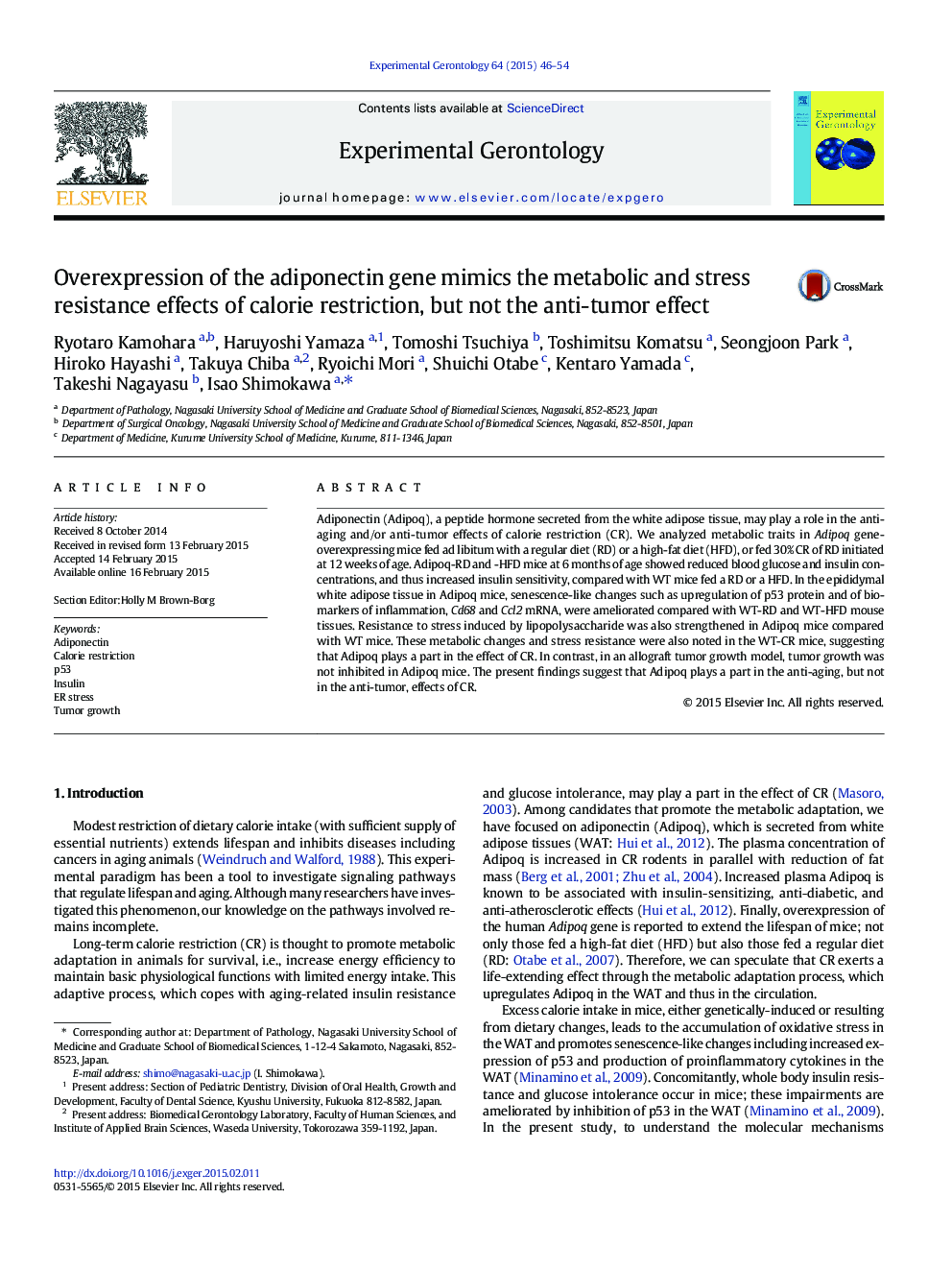| کد مقاله | کد نشریه | سال انتشار | مقاله انگلیسی | نسخه تمام متن |
|---|---|---|---|---|
| 8263757 | 1534877 | 2015 | 9 صفحه PDF | دانلود رایگان |
عنوان انگلیسی مقاله ISI
Overexpression of the adiponectin gene mimics the metabolic and stress resistance effects of calorie restriction, but not the anti-tumor effect
ترجمه فارسی عنوان
بیش از حد بیان ژن آدیپونکتین اثرات متابولیک و استرس را از محدودیت کالری تقلید می کند، اما اثر ضد تومور
دانلود مقاله + سفارش ترجمه
دانلود مقاله ISI انگلیسی
رایگان برای ایرانیان
کلمات کلیدی
موضوعات مرتبط
علوم زیستی و بیوفناوری
بیوشیمی، ژنتیک و زیست شناسی مولکولی
سالمندی
چکیده انگلیسی
Adiponectin (Adipoq), a peptide hormone secreted from the white adipose tissue, may play a role in the anti-aging and/or anti-tumor effects of calorie restriction (CR). We analyzed metabolic traits in Adipoq gene-overexpressing mice fed ad libitum with a regular diet (RD) or a high-fat diet (HFD), or fed 30% CR of RD initiated at 12Â weeks of age. Adipoq-RD and -HFD mice at 6Â months of age showed reduced blood glucose and insulin concentrations, and thus increased insulin sensitivity, compared with WT mice fed a RD or a HFD. In the epididymal white adipose tissue in Adipoq mice, senescence-like changes such as upregulation of p53 protein and of biomarkers of inflammation, Cd68 and Ccl2 mRNA, were ameliorated compared with WT-RD and WT-HFD mouse tissues. Resistance to stress induced by lipopolysaccharide was also strengthened in Adipoq mice compared with WT mice. These metabolic changes and stress resistance were also noted in the WT-CR mice, suggesting that Adipoq plays a part in the effect of CR. In contrast, in an allograft tumor growth model, tumor growth was not inhibited in Adipoq mice. The present findings suggest that Adipoq plays a part in the anti-aging, but not in the anti-tumor, effects of CR.
ناشر
Database: Elsevier - ScienceDirect (ساینس دایرکت)
Journal: Experimental Gerontology - Volume 64, April 2015, Pages 46-54
Journal: Experimental Gerontology - Volume 64, April 2015, Pages 46-54
نویسندگان
Ryotaro Kamohara, Haruyoshi Yamaza, Tomoshi Tsuchiya, Toshimitsu Komatsu, Seongjoon Park, Hiroko Hayashi, Takuya Chiba, Ryoichi Mori, Shuichi Otabe, Kentaro Yamada, Takeshi Nagayasu, Isao Shimokawa,
